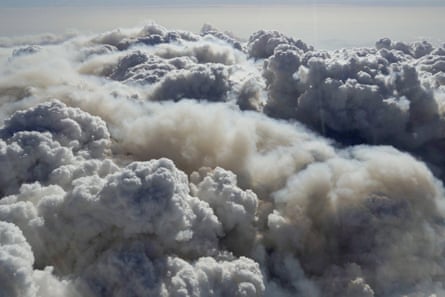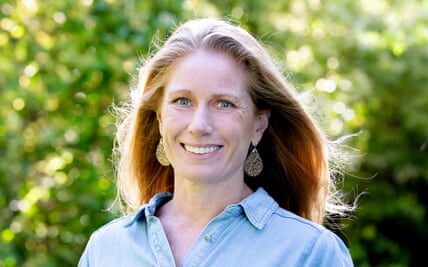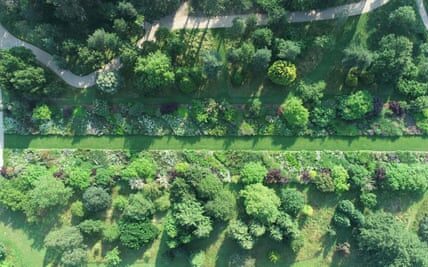Licence to probe: the liberating beauty of fiction after journalism | Michael Brissenden
During my nearly 40 years as a journalist, the climate crisis has been a constant, creeping refrain – from the first greenhouse conference in the late 1980s and the first IPCC report in the early 90s. There was the Hawke governments’ plan to cut emissions by 20% below 1988 levels by 2005, and the subsequent walking back of that plan.
Then on through the decades of bitter political division and debate and policy failures; the proposal for an Emissions Trading Scheme under John Howard; Kevin Rudd’s “great moral challenge of our generation”; the ill-fated Carbon Pollution Reduction Scheme, the Gillard ETS, the relentless campaign against it by Tony Abbott and the wasted decade of what’s become known as the “Climate Wars” that followed.
On and on we stumble. In Australia this has been a story of power and political ambition and realpolitik triumphing over the national interest, even as the dire evidence stacks up, even as our own lived reality tells us precisely where this is heading. The Black Summer of 2020 proved climate collapse is no longer a future event. It’s now a present, frightening reality.
Science tells us the world’s climate is changing and personal experience is starting to show us just how devastating that might be. After six decades on the planet, if you know a place well enough, you start to notice subtle changes. The landscape begins to shift, animals and birds start behaving differently and the once occasional days of excruciating heat become more frequent and unpredictable.
My own point of personal place of reference is a small village on the south coast of New South Wales. In 2020 it was the first place threatened by the devastating Currowan bushfire. That fire tore through the bush and raged all the way to the coast. Our little village was lucky. Others weren’t.
-
Sign up for Guardian Australia’s free morning and afternoon email newsletters for your daily news roundup
I was on the Hume highway the day fire hit, driving between Sydney and Canberra. The air was thick with smoke, convoys of fire trucks with crews from as far away as Victoria and South Australia were heading north. When I could, I obsessively tracked the blaze on the RFS fires near me app, watching as the black line of fire encircle the village. The ABC’s emergency broadcast was telling residents to shelter in place – it was too late to leave. Luckily none of my family were there that day but for those who were, it was a terrifying experience that has left many of them still struggling with a form of collective PTSD.
The Currowan fire burned on for weeks. It threatened lives, destroyed property and traumatised communities. That experience set me thinking: here was a powerful and confronting premise for a novel.

My books to this point have slotted broadly into the crime fiction/thriller genre. Those things that make the crime novel work intrigue me – corruption, betrayal, deception, greed, murder. And so it was with Smoke, where a simple opportunistic crime spirals into a bigger story about an individual, a family, a community and a landscape under pressure from the changing environment.
Once I really got into the writing it started raining here in Australia, and then the forests started burning in North America and Europe. Clearly this is not a uniquely Australian experience. Having lived and worked as a correspondent in the US, and reported on fires and the changing climate there, it felt like a good challenge to switch the setting of the story to California.
There are some minor differences in the way they fight fires in different countries. In the US, for example, they sometimes deploy teams of daredevil “smoke jumpers” who parachute out of planes to reach fires in remote areas. And of course forests burn in different ways. Pine forest fire behaviour is different to that of eucalypt forest. But there are also remarkable similarities.
after newsletter promotion
In the US and Australia the forest management practices of the Indigenous people have been widely and routinely ignored (although that is starting to change), intensive forestry has turned vast areas into monoculture plantations, and a combination of forest protection and the industrialisation of forestry has reduced the number of jobs available in what were historically single industry towns.
One thing I have found when embarking on a new fiction project is that some long-practised journalistic skills help. Writers, like journalists, have a licence to probe. Crime fiction in particular needs to be believable to be convincing. But the liberating beauty of the research phase is that you can ask all the questions you like and no one needs to go on the record.
I have also found the process intoxicating and liberating. Cut free from the constraints of journalistic writing, a story can take it’s own shape, can lead you down rabbit holes you’d never expected, but here’s the thing – it often rings true and there’s so much a writer of fiction can say about the world through character, voice and narrative without beating the reader over the head with a didactic essay.
And here’s another thing: in fiction your characters can say what you want them to say and then if you don’t like them, you can just kill them off. And maybe that’s a good enough reason to turn to fiction after a lifetime of journalism.
Smoke by Michael Brissenden (Affirm Press) is out 28 May
Source: theguardian.com


